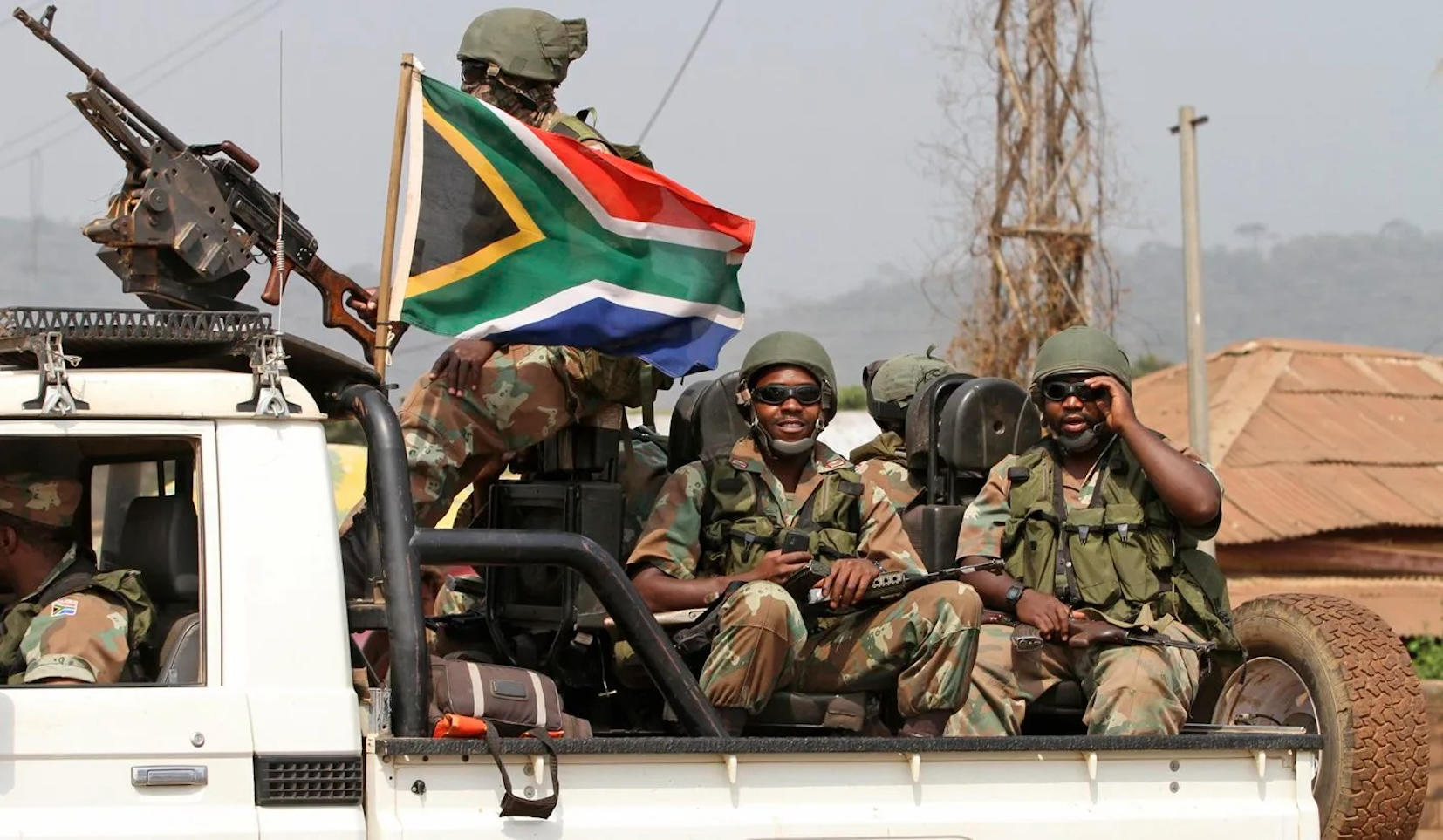Despite increased government spending, the South African National Defence Force (SANDF) remains severely underfunded, highlighting concerns about its ability to meet critical operational demands.
The recent deaths of 14 SANDF soldiers in the eastern Democratic Republic of Congo (DRC) lay bare the consequences of these funding constraints. A severe shortage of serviceable air assets crippled troop mobility and response capabilities, exposing fatal gaps in logistical support. The incident is the latest in a series of warnings that the SANDF is operating under conditions that threaten both its effectiveness and the lives of those deployed.
Minister of Finance Enoch Godongwana today announced an allocation of R60.8-billion for defence and state security. Within this, R9.4-billion is designated for defence and correctional services, with R5-billion specifically earmarked for South Africa’s participation in the Southern African Development Community (SADC) mission in the DRC.
“Over the medium term, R5-billion has been allocated to the Department of Defence to support South Africa’s participation in the Southern African Development Community mission in the Democratic Republic of the Congo and to supplement existing peacekeeping activities,” Godongwana said.
Join Daily Maverick’s webinar: The Budget Finally Lands: What you need to know
However, it remains unclear whether “existing peacekeeping activities” refers solely to the current SADC mission in the DRC, or extends to broader military operations such as border security or continental peacekeeping engagements.
Despite this funding, the minister was unequivocal in stating that overall SANDF expenditure would remain constrained. Instead of increased spending, he emphasised budget restructuring as the preferred route to modernisation:
“We will continue working with the Department of Defence on ways to change the composition of expenditure to modernise the defence force.”
Parliamentary pushback over DRC funding
The December 2023 deployment to the DRC drew sharp criticism, particularly over the Treasury’s reliance on emergency funding mechanisms. Parliament’s Portfolio Committee on Defence lambasted the use of Section 16 of the Public Finance Management Act to allocate R2.1-billion, arguing that such measures indicated a failure in long-term budget planning.
“The committee is of the view that the utilisation of section 16 of the act was not warranted in this instance.”
While the government defended its decision — citing the urgent nature of the December deployment after the budget cycle had closed — analysts argue that continued reliance on emergency funding reflects deeper problems in strategic planning and financial resource management within the defence sector.
Budget cuts costing lives
The loss of 14 SANDF soldiers in eastern DRC has exposed serious operational vulnerabilities stemming from inadequate funding. Defence experts and parliamentarians have long warned that chronic budget constraints undermine troop readiness, logistical capabilities, and air support availability.
In the recent conflict, the lack of functional air support — partly due to spare part shortages — meant that critical reinforcements and medical evacuations were delayed or outright impossible. Analysts contend that this logistical failure directly contributed to the fatalities sustained.
The Parliamentary Portfolio Committee on Defence has repeatedly pointed to inefficient procurement practices and an oversized wage bill as major obstacles to reform. Without targeted increases in capital expenditure, particularly for modernising aircraft and naval assets, operational failures will persist, inevitably leading to further loss of life.
Despite heightened calls for intervention, Budget 2025 remains cautious, choosing internal budgetary shifts over meaningful increases in defence spending.
Security and social development compete for sparse funds
The Government of National Unity (GNU) continues to prioritise social spending on infrastructure, health, and education over increased defence allocations. Godongwana underscored the complexity of these budget decisions: “The difficult policy choices we make today are about moving South Africa forward into a better, more prosperous future.”
Yet, the recent casualties in the DRC provide a stark counterpoint to this approach, illustrating the real and immediate dangers of an underfunded military. Without a serious re-evaluation of SANDF funding priorities, the consequences will continue to be measured in lives lost.
For now, the SANDF remains trapped between escalating operational demands and rigid budget constraints — a precarious balance with grave implications for national security and the safety of its personnel. DM





